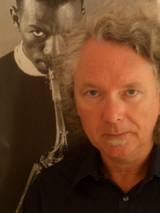International jazz journalists, academic scholars, presenters and musicians rarely meet together, but that’s the plan for the “Lost in Diversity” conference during the 14th Enjoy Jazz Fest, which I’m attending tomorrow (Nov 7) through Sunday in Heidelberg, Germany. Curated by ethnomusicologist and sociologist Dr. Christian Broecking
of the Heidelberg Center of American Studies in the Ruprecht-Karls-Universität (oldest in Germany, founded 1386), this is the only such transatlantic summit meeting I’ve heard of since “Jazz in the Global Imagination,” a one-day symposium produced by the Center for Jazz Studies, Columbia University with assistance from the Jazz Journalists Association in 2007. That’s where I first met Broecking, and it seems to be one of the models for this event.
The music in Heidelberg will be extraordinary: pianist Herbie Hancock solo; an Archie Shepp/Yusef Lateef-led quintet with all-stars Reggie Workman, Mulgrew Miller and Hamid Drake; concerts by Bill Frisell, Madeliene Peyroux, Vijay Iyer, Alexander von Schlippenbach and Billy Hart (with his quartet featuring Ethan Iverson). I bet the talks, about the present-day relevance of jazz across cultures, will be fascinating, too.
I’m speaking on “Motivations in U.S. Jazz,” while my friend and colleague Ted Panken’s topic, “All Jazz Is Modern,” considers “radical aesthetics” in light of the Jazz at Lincoln Center Orchestra and the AACM. Tom Carter, president of the Thelonious Monk Institute and force behind UNESCO’s International Jazz Day, has a presentation on “Jazz and Diplomacy”; National Endowment of the Arts program officer Katja von Schuttenbach will delve into her research on trailblazing pianist Jutta Hipp. Wolfram
Knauer, director of the Jazzinstitute Darmstadt; Eric Porter of University of California, Santa Cruz; Daniel Fischlin of University of Guelph; Christian Dalgas from the Copenhagen Jazz Festival, and Thomas Krüger, president of the German Federal Agency for Civic Education are among others scheduled to give addresses.
It’s hard to predict what can come out of this meeting, other than that thinkers-about-jazz will stimulate and probably challenge each other. Of course I’m of the opinion that exchanges of ideas are in themselves good things. Based on previous experience at the Jazz in the Global conference, panels at the Leeds (UK) and Tampere (Finland) jazz festivals, Guelph Jazz Colloquium, confabs at the Siena Jazz Summer Workshop and with personal contacts in Kiev, Armenia and Russia, I can attest that perspectives on jazz in the U.S. and in Europe are quite different. But that’s the “diversity” part. And if now we’re lost, getting together can only help us find.  The best thing about this conference, looking for “definitions and comparisions about how jazz takes part in relevant discourses, socially and politically, on both sides of the Atlantic,” is that it’s intended to be the first in an annual series. Then too, the beer is renowned. Further reports to follow.
The best thing about this conference, looking for “definitions and comparisions about how jazz takes part in relevant discourses, socially and politically, on both sides of the Atlantic,” is that it’s intended to be the first in an annual series. Then too, the beer is renowned. Further reports to follow.


